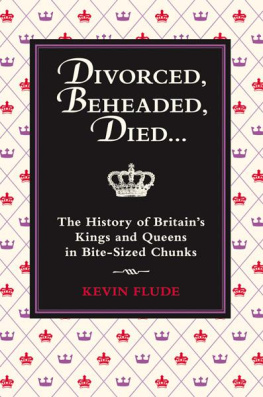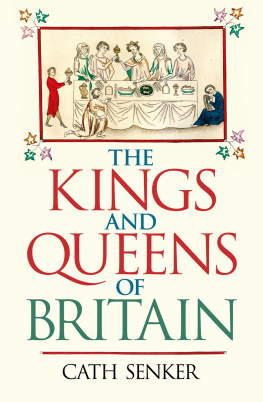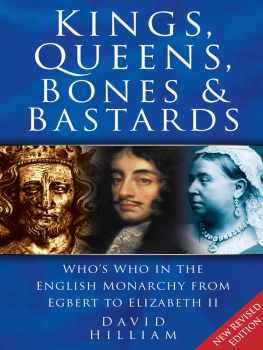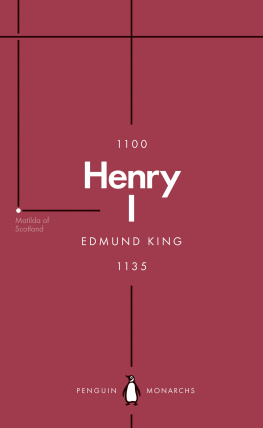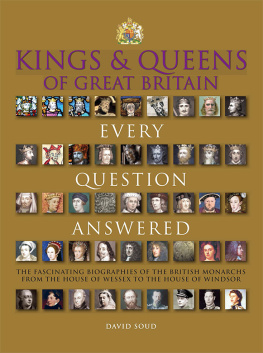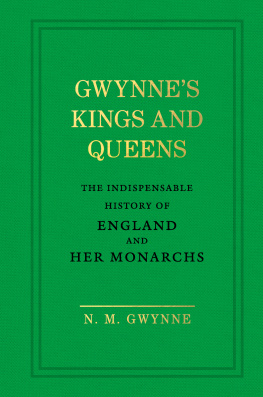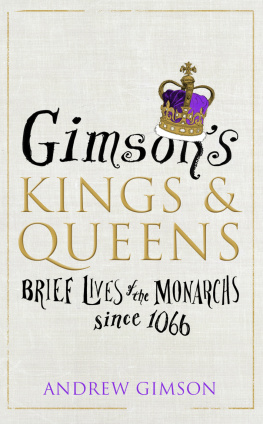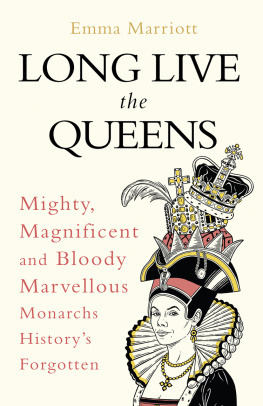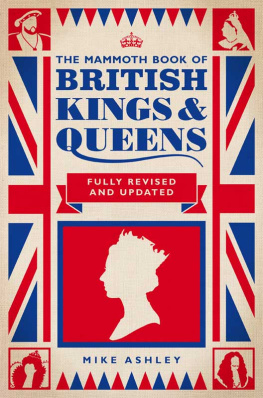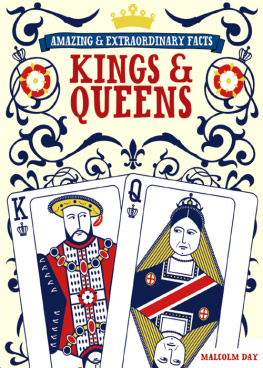
Kevin Flude
is the Director of the Old Operating Theatre Museum in London and a lecturer in various institutes of higher education. He has worked in the museum world for over thirty years, including the Museum of London and the Victoria and Albert Museum. He is also the Course Director for the Elderhostel programme in London, which provides study tours, lectures and walks on the history, archaeology and art of the city.
Copyright
First published in Great Britain in 2009 by
Michael OMara Books Limited
9 Lion Yard
Tremadoc Road
London SW4 7NQ
This electronic edition published 2010
ISBN 978-1-84317-600-8 in ePub format
ISBN 978-1-84317-599-5 in Mobipocket format
ISBN 978-1-84317-362-5 in hardback print format
Copyright Michael OMara Books Limited 2009
All rights reserved. You may not copy, store, distribute, transmit, reproduce or otherwise make available this publication (or any part of it) in any form, or by any means (electronic, digital, optical, mechanical, photocopying, recording or otherwise), without the prior written permission of the publisher. Any person who does any unauthorized act in relation to this publication may be liable to criminal prosecution and civil claims for damages.
A CIP catalogue record for this book is available from the British Library.
All maps Michael OMara Books Limited
www.mombooks.com
CONTENTS
For Ben and Jean Flude,
who started me off on my love of history,
and for Poppy,
who put up with many lost weekends.
Willie Willie Harry Stee
Harry Dick John Harry three;
One two three Neds, Richard two
Harrys four five six then who?
Edwards four five, Dick the bad,
Harrys (twain), Ned six (the lad);
Mary, Bessie, James you ken,
Then Charlie, Charlie, James again
Will and Mary, Anna Gloria,
Georges four, Will four Victoria;
Edward seven next, and then
Came George the fifth in nineteen ten;
Ned the eighth soon abdicated
Then George six was coronated;
After which Elizabeth
And thats all folks until her death.
EDITORS INTRODUCTION AND ACKNOWLEDGEMENTS
It is slightly unfashionable, these days, to be taught very much about the kings and queens of Britain. Those of us who have been educated the so-called modern way have gone through our entire school career learning only a few disconnected facts about Henry VIII or Queen Victoria, with little idea of how they join up or why their stories are important. Those who experienced a more old-fashioned education, by contrast, learned a great deal about the monarchy, much of it in the form of crushingly boring dates, facts and figures, and most of it promptly forgotten as soon as the exams were over.
There is a need, then, for this kind of book, one that places the monarchy firmly in its rightful place at the centre of British history yet delights in recounting the human stories of these remarkable men and women. For it is striking how often the personal influences the political in history how the fate of the nation can hang on the whims and fancies of one person at the top. The most famous example is Henry VIII, who changed the entire countrys official religion as a result of his determination to rid himself of his first wife. But in these pages you will find countless other examples, from King Johns greed and lack of judgement, which led directly to the foundations of modern constitutional law, to Charles Is stubborn intransigence, which started a civil war. Although no historian worth his salt would claim that it is a monarchs personality alone that changes the course of history no one, not even a king, exists in a vacuum nonetheless it can play a hugely important role, as these stories show.
This book also offers the opportunity to place at centre stage the stories that are usually left in the margins, so there are sections on the important Welsh and Scottish monarchs, the legendary kings of ancient Britain, and the early British warlords, many of whose names are unfamiliar to us now but who between them mapped out the boundaries of what we now call Scotland, England and Wales. Through these stories we can see how the nation we know as Britain came slowly and often painfully into being.
By deliberately keeping the entries in this book short and to the point, we hope to provide an accessible and entertaining overview of the sweep of British history that will perhaps renew a dormant interest in the subject amongst those readers who have not picked up a history book for a while, or ignite a spark for those who are hearing these stories for the first time. Either way, we hope you enjoy reading these bite-sized chunks of history as much as we have enjoyed compiling them.
The editors would like to thank, first of all, Kevin Flude for his great breadth of knowledge as well as his eye for interesting detail. We would also like to thank Juliana Foster, Glen Saville, Judith Palmer, Ana Bjezancevic, Toby Buchan and Anna Marx for their important contributions in putting this book together, Connie Flude for additional royal research, and Thomas Edlin for his invaluable fact-checking and historical input. Needless to say, any remaining errors are our own.
Legendary Kings of Britain
Britain does not pay much attention to its mythological origins or legendary kings. The main source of our knowledge is the writings of Geoffrey of Monmouth, in particular his History of the Kings of Britain , which first appeared around AD 1136. Monmouth loved a good story more than he cared for historical accuracy, and as a consequence reputable English historians tend to dismiss the stories and pass them over to their literary colleagues. But these are our foundation myths and should be treasured, just as we treasure stories of Romulus and Remus, and Odysseus and Achilles.
B RUTUS
Reigned c. 11601137 BC
Brutus was the first king of Britain and gave his name to the island (Brutus was his Latinized name; contemporaries would have known him as Brut or Brit). He was a Trojan descended from Aeneas, who survived the sack of Troy and whose descendant Romulus founded Rome.
Brutus led a group of Trojans to Britain where they wiped out the native inhabitants, a race of giants. The last giant standing was Gogmagog, who met his end in a wrestling match with the warrior Corineus, one of Brutuss companions. Corineus went on to be the first Duke of Cornwall, while Brutus set up his capital, Troia Nova (New Troy), on the banks of the Thames, which later became the site of London. It was here that Brutus is said to have been buried twenty-three years after arriving in Britain.

B LADUD
Reigned c. 937917 BC
A couple of hundred years later, the heir to the throne, Prince Bladud, contracted leprosy and was banished from the royal court. Earning a living as a humble pig herd on the banks of the River Avon, he noticed that his pigs were cured of their skin complaints after rolling around in the mud near some hot springs. Bladud followed suit and was cured of his leprosy. He was welcomed back to court, and in time became king. He founded Bath near the site of his miraculous cure and became a renowned necromancer, experimenting with elemental forces. Determined to conquer the air, he made himself a pair of wings and soared over New Troy (now called Trinovantum) but lost control and crashed down on to the Temple of Apollo and was killed.

Next page
